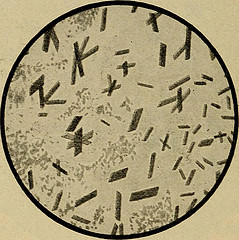I have a bit of a bee in my bonnet. 
The news of Charlie Sheen’s HIV Status has been circling around tabloid and celebrity media for some time now. Up until today, it had been very “secretive”, with little teasers here and there of people talking about a mystery celebrity that was HIV positive that had possibly infected many people. The fact that someone’s HIV status has been sensationalized in this manner is just absolutely disgusting to me! Our sexual health is a very personal topic and for it to be exploited and publicized in the media is in poor taste and very insensitive. I will state, for the record, that as of now, I have no idea of what Charlie Sheen’s HIV status is and nor do I think it is any of my business. And I do not want anyone to interpret my writing this blog as an endorsement of the publicity that this topic has received. In fact, whether it is true or not, I want this blog to be about how we treat STD-STI status and how its stigmatization leads to more infections and more shame. I also want to talk about how if your partner doesn’t know your status, you really don’t have their consent to knowingly expose them to a STD/STI.
Stigmatization, Shame, and Consent
It is news stories like this, and locker room gossip, that lead to the greater stigmatization of sexually transmitted diseases (STDs) or sexually transmitted infections (STIs). And with greater stigmatization leads to shame and greater secrecy: the more something is stigmatized, the more it is likely that someone will try to hide or not share their status, and my opinion is that if you have a STD/STI and you do not share that with a partner, you are victimizing that partner by not giving them the right to choose whether they want to risk their health and wellness and sexual self-image on a sexual relationship with you. And they might want to take that risk. Or they might not. But consent is the name of the game in sex these days. You need a yes before you can proceed, and that has to do with STD/STIs as well.
So if you knowingly have an STD/STI and do not share that with your partner (no matter how much they do or do not matter to you), you are taking away their right to choose whether to be exposed to a sexually transmitted disease. And not only does it victimize your partner, it is also in very poor taste.
“I got tested, so I’m all good.” Really? What did you get tested for?
News Alert: When you walk into your doctors office and ask for an STD Test, you will likely get tested for the following:
HIV
Chlamydia
Gonorrhea
Syphilis
Why only those four you ask? While I am not COMPLETELY sure, I have an idea it’s because those are the four diseases that are required to be reported to the Center for Disease Control. So my guess is that the research, testing, and treatment for these diseases have some money tied up into them. Also, HIV and Syphilis can be very fatal untreated (and chlamydia and gonorrhea is no walk in the park either). But I don’t want to get into this too much, I am just writing to notify you that this is what likely will occur. I may be totally off the mark and some testing is WAY better than no testing!
What they WON’T test you for (unless you ask or they determine you to be “high risk”) are as follows:
Hepatitis C
Hepatitis B
HPV (Human Papilloma Virus/ genital warts)
Herpes (HSV I and HSV II)
Vaginitis: Yeast Infections or Bacterial Vaginosis
Molluscum Contagiosum
Crabs (Pubic Lice)
Nongonococcal Urethritis
Pelvic Inflammatory Disease
Scabies
Trichomoniasis
And to really freak you out, there are new STDs/STIs being discovered that aren’t on this list: read more
So when you say “I’ve been tested” the questions to follow should be:
1) When was the last time you were tested?
2) What were you tested for?
3) How many sexual partners have you had since you have last been tested?
4) Do you regularly use condoms during sex?
5) Since the last time you were tested, did you have sex with someone you knew who had an STD/STI?
It is essential you are your own health advocate in these situations. And you might need to pay a little money out of pocket, because insurance does not always cover all of these tests (as they deem them unnecessary unless there is evidence of symptoms or risk). But your sexual health is invaluable (as well as the sexual health of your partners), so I suggest you make the investment to test for as many as you can.
So what are we dealing with?
While the statistics vary, according to the American Sexual Health Association (http://www.ashasexualhealth.org),
More than half of all people will have an STD/STI at some point in their lifetime.
Each year, one in four teens contracts an STD/STI.
One in two sexually active persons will contract an STD/STI by age 25.
One out of 20 people in the United States will get infected with hepatitis B (HBV) some time during their lives. Hepatitis B is 100 times more infectious than HIV.
It is estimated that as many as one in five Americans have genital herpes, a lifelong (but manageable) infection, yet up to 90 percent of those with herpes are unaware they have it.
With more than 50 million adults in the US with genital herpes and up to 776,000 new infections each year, some estimates suggest that by 2025 up to 40% of all men and half of all women could be infected.
Over 14 million people acquire HPV each year, and by age 50, at least 80 percent of women will have acquired genital HPV infection. Most people with HPV do not develop symptoms.
It goes on and on, so I won’t get too bogged down. But you get the point. It isn’t just about HIV anymore… and the consequences of a positive status on many of these diseases/infections can have devastating consequences due to stigma, shame, and low sexual self-esteem.
Stigma and Shame Around STD/STI Status
Many people these days say “HIV, whats the big deal, it’s basically curable now”. I’m not going to attest to the medical advances around HIV and other STDs/STIs. What I do want to talk about is no matter the cure, no matter the treatment, the stigma and shame that surround ANY diagnosis of an STD is there and it is enough to knock you down off your sexual high horse and come back to reality that you are a human being and can get diseases from other human beings, no matter how careful or how careless you are about safe sex. So even if there are medical treatments and cures for sexual transmitted diseases and infections, they don’t address the stigma and shame you may feel after you receive your first diagnosis of a STD/STI.
And that stigma and shame just might cause you to NOT want to tell a partner about you status. Not tell your partner that you sometimes get cold sores on your mouth. Not tell your partner that you had to burn genital warts once or twice or many times. Not tell your partner that you have had several abnormal PAP smears and you are afraid you have cervical cancer, the third most common cancer among women.
And stories like Charlie Sheen’s HIV Status, and the numerous reports about which celebrities have genital herpes, and the locker room whispers about who has what and who gave what to who, contribute to this stigma and shame.
If you really like your partner, or if you just want to be a good person, tell your partner about your status and let THEM make the choice. Victimization occurs when you take that choice away from someone.
And if you are struggling with telling your partners about your status, getting tested, or dealing with stigma and shame around a diagnosis of an STI/STD, feel free to give me a call at the information below. You are not alone, in fact, you are VERY not alone.

